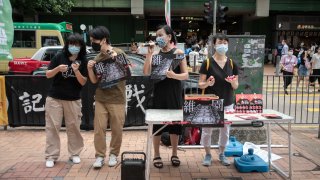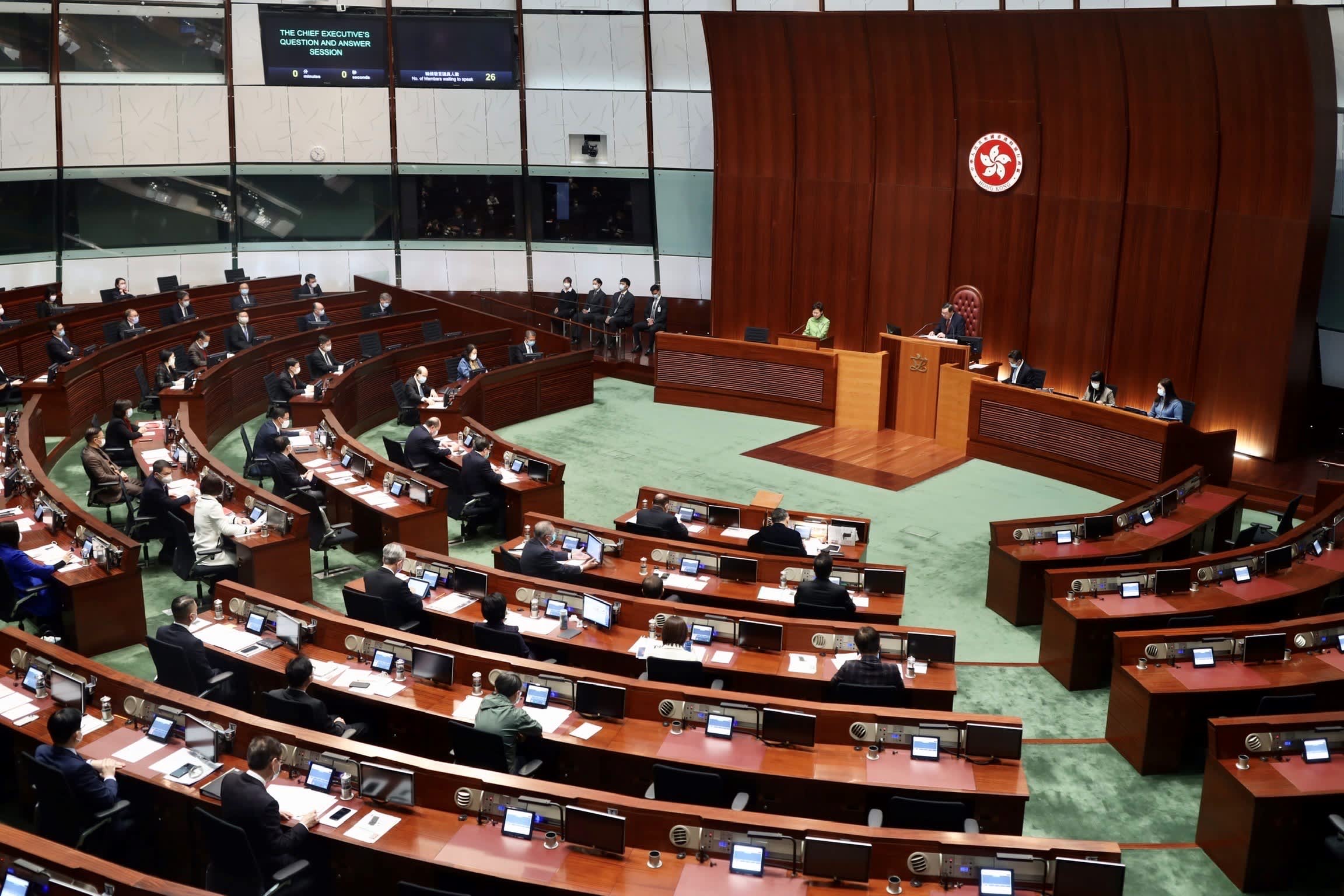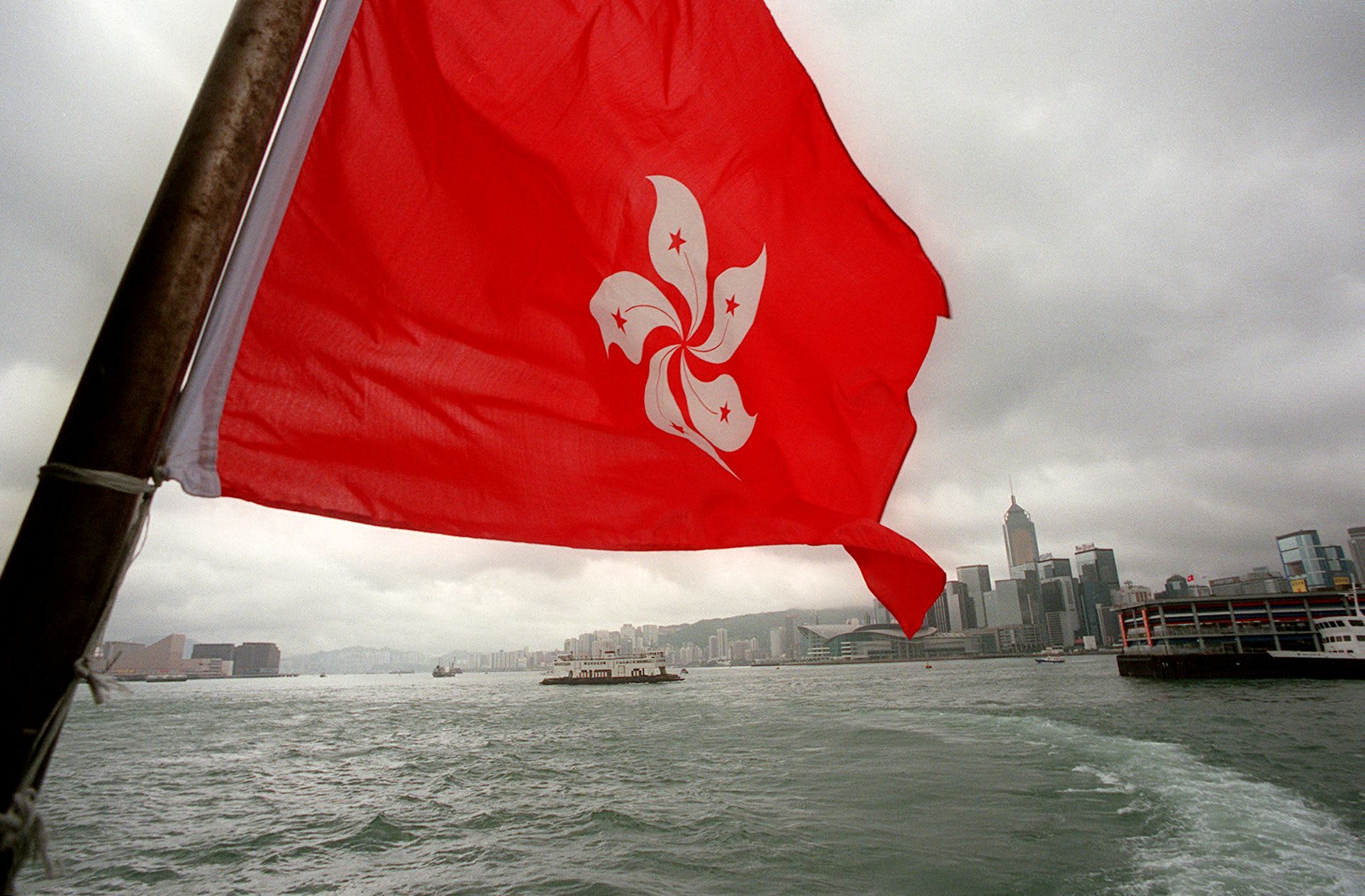
Police arrested an organizer of Hong Kong's annual candlelight vigil remembering the deadly Tiananmen Square crackdown and warned people not to attend the banned event Friday as authorities mute China's last pro-democracy voices.
In past years, tens of thousands of people gathered in Hong Kong's Victoria Park to honor the victims who died when China’s military put down student-led pro-democracy protests on June 4, 1989, killing hundreds if not thousands.
China’s ruling Communist Party has never allowed public events marking the military’s attack on protesters and citizens, and security was increased in the Beijing square Friday morning, with police checking pedestrians' IDs and tour buses shuttling Chinese tourists as on any other day.
Authorities have squelched all discussion of the events on the mainland, where the few remaining activists and victims’ advocates are put under increased police monitoring and taken away on involuntary “vacations” around the anniversary. Responding to a question about the crackdown, Foreign Ministry spokesman Wang Wenbin on Thursday reiterated China's stance that its response to the “political turmoil” of 1989 had been correct.
We're making it easier for you to find stories that matter with our new newsletter — The 4Front. Sign up here and get news that is important for you to your inbox.
Efforts to suppress public memory of the Tiananmen events have lately turned to Hong Kong, where the June 4 Museum was closed this week and police again Friday warned residents not to attend the vigil.
More on China-Hong Kong Tensions:
The nighttime event in Victoria Park has been banned for a second year under coronavirus pandemic restrictions, although the city has had no local cases for over six weeks. But the action comes amid sweeping moves to quell dissent in the city, including a new national security law, election changes and arrests of many activists who participated in pro-democracy protests that swept Hong Kong in 2019.
Hong Kong police in vehicles and on foot cordoned off parts of Victoria Park, including football fields and basketball pitches, to prevent any unauthorized gatherings. Police said they were aware of calls on social media urging people to turn up for the vigil.
Taking part in an illegal gathering has a maximum penalty of five years imprisonment.
In the University of Hong Kong, students took part in the annual washing of the “Pillar of Shame” sculpture, which was erected to remember the victims of the Tiananmen Square crackdown.
Charles Kwok, the president of the students' union, said that the event was “legitimate and legal” and that they hoped to commemorate the people who sacrificed for freedom and democracy.
“For HKU students, in cleaning the Pillar of Shame, we shall learn how our predecessors defended the freedom of expression before, and we shall not easily give up,” Kwok said.
Law Kwok-hoi, police senior superintendent, told reporters police had arrested a 36-year-old woman from the Hong Kong Alliance, as well as a 20-year-old food delivery man for advertising and publicizing an unauthorized assembly on their social media accounts even after the vigil was banned.
Chow Hang Tung, vice chair of the group, was arrested Friday morning, according to the alliance, which organized the vigil and ran the June 4 Museum dedicated to the memory of Tiananmen.
After the ban was issued, Chow urged people to commemorate the event privately by lighting a candle wherever they are.
Last year, thousands went to Victoria Park to light candles and sing songs. Police later charged more than 20 activists including Chow for their participation in the unauthorized assembly.
Two other key members of the Hong Kong Alliance — Lee Cheuk-yan and Albert Ho — are behind bars for taking part in unauthorized assemblies in 2019.
Chow, a barrister, said in an earlier interview with The Associated Press that she was expecting to be imprisoned at some point for her activism. She has been part of the Hong Kong Alliance since 2010.
“I’m already being persecuted for participating and inciting last year’s candlelight vigil,” she said.
“If I continue my activism in pushing for democracy in Hong Kong and China, surely they will come after me at some point, so it’s sort of expected.”
As Chinese authorities seek to curb remembrances, they also seem confident the passage of time will erase memories of the 1989 crackdown.
The government made no response to an appeal from Tiananmen Mothers, published on the Human Rights in China website, urging the party to release official records about the crackdown, provide compensation for those killed and injured, and hold those responsible to account.
Tiananmen Mothers said 62 of its members have died since the group representing victims' relatives was founded in the late 1990s. It said many young Chinese have “grown up in a false sense of prosperous jubilance and enforced glorification of the government (and) have no idea of or refuse to believe what happened on June 4, 1989, in the nation’s capital.”
The suppression of commemorations of the Tiananmen victims has been accompanied in recent years by harsh repression against religious and ethnic minorities in Tibet, the northwestern region of Xinjiang and Inner Mongolia, along with the sharp curtailing of political rights in Hong Kong.
“China’s authoritarian regime has used another kind of force — enforced amnesia — in its attempts to bury the truth of the brutal crimes it committed against its people,” Human Rights in China said in a statement online.
On self-governing Taiwan, activists who host an annual Tiananmen memorial that draws hundreds are moving mostly online as the island faces its worst virus outbreak of the pandemic. The New School for Democracy, an NGO, is setting up a temporary memorial pavilion Friday afternoon where people in small groups can leave flowers and other mementoes in honor of the date.
The U.S. State Department issued a statement of support for those advocating for victims and pursuing the truth about the events.
“The courage of the brave individuals who stood shoulder-to-shoulder on June 4 reminds us that we must never stop seeking transparency on the events of that day, including a full accounting of all those killed, detained, or missing,” the statement said, adding that such demands echoed in the struggle for political rights in Hong Kong.
Associated Press journalists Alice Fung in Hong Kong, Huizhong Wu in Taipei and Emily Wang Fujiyama in Beijing contributed to this report.



